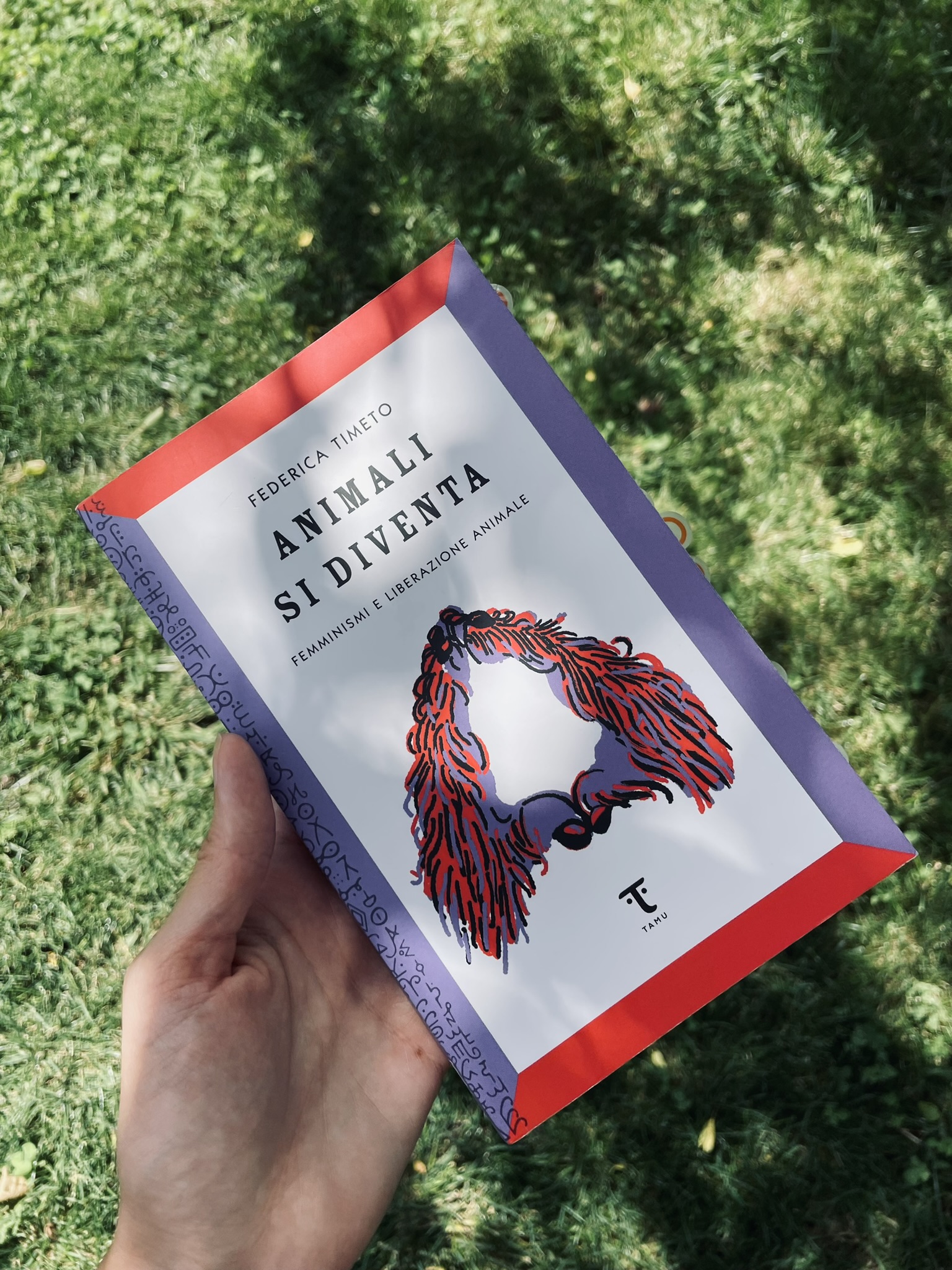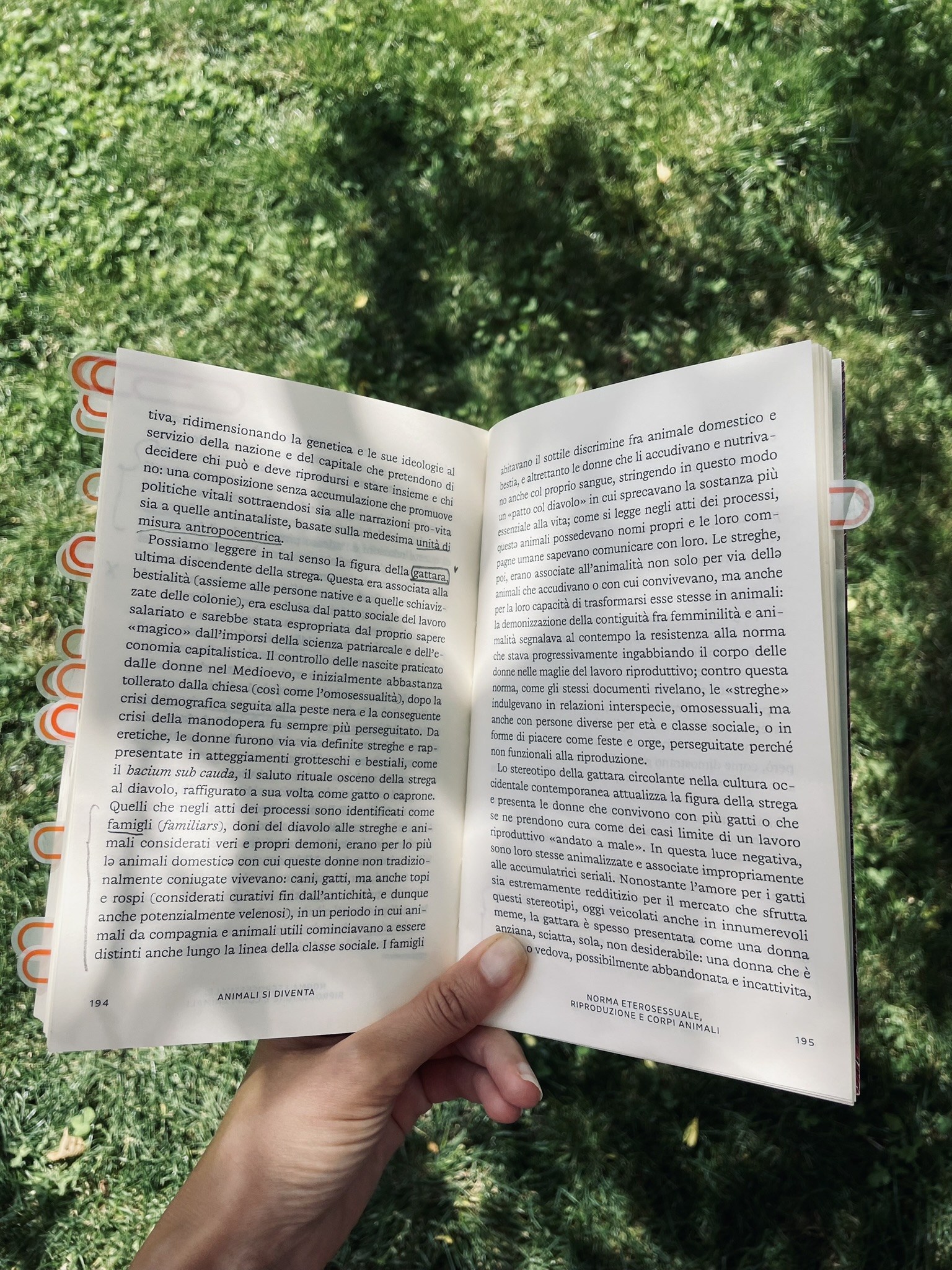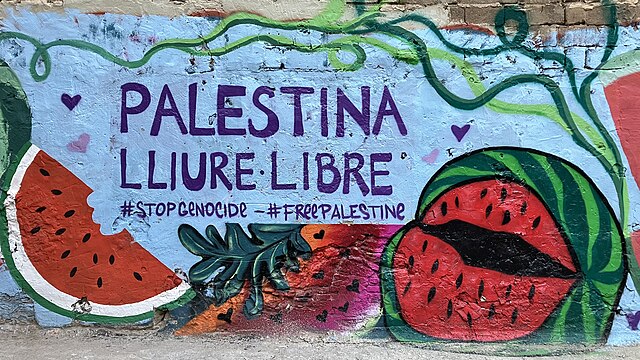
Interview by Maria Martelli
Are feminisms and animal liberation related? Very much, and in many ways, as Federica Timeto’s new book will show you. “Animali si diventa. Femminismi e liberazione animale,” published in Italian, navigates critical theories smoothly to present a short yet comprehensive account of the interlockings between the social movements for women and those for animals.
Composed of six chapters, the book manages to hold the complexities and differences of various feminist claims, exploring their many facets. The first chapter is focused on the origins of the animal question within Western feminism, unraveling the rights discourse and its perils and detailing the case against vivisection (of which the most famous is the Brown Dog Affair), championed by feminists of the time along with vegetarianism. The second chapter reads antispeciesism from a Black feminist perspective, describing how racialization and animalization are interlinked in the colonialist-humanist quest to dominate – with indicative cases such as those of Henrietta Lacks and Saartjie Baartman. The third chapter shows the ways discourses changed and fluctuated, from the earliest critiques eco-veg-feminists (such as Carol Adams, Greta Gaard) raised to Peter Singer’s and Tom Reagan’s rationalist arguments, and later to Gary Francione’s extinctionists position, going towards feminist materialisms (Donna Haraway), transfeminisms, critical and feminist animal studies. In the fourth, the importance of feminist standpoints is underlined, as well as care ethics and practices (such as Lori Gruen’s entangled empathy), and the dismantling of dualisms (as Val Plumwood argues for). The fifth presents veganism as a feminist politics, recuperating the image of the vegan killjoy and the monstrous vegan against the usual arguments that wish to restrain it simply to a “diet” or a “choice”. Finally, the sixth chapter makes a claim to go beyond a “straight” antispeciesism, one that easily categorizes, towards a queering that refuses the easy knowability and instrumentalization of nature.
Re-vitalizing a panoply of important figures in feminist and animal studies, Timeto wrote a book that puts these many strands together while arguing always for both/all: feminist and animal liberation, never one without the other.

Dear Federica, your book begins with the harrowing moment of having wildfires circle your home. Your writing is a way of trying “to breathe” despite the smoky, polluted air of anthropocentric capitalism. The whole endeavor stems from, and argues for, nurturing vulnerability and situated standpoints. What are the sociological roots for these ideas and how can a reader do that?
The first thing I do in the book is to position myself (unfortunately, in a tragic contingency, that of the fires that ravaged southern Italy, where I live half the year, in the Summer of 2023). Because I could not speak except through my body, because I believe that my body is the point of contact with the world, the place where more than human life passes through me and where I become with other lives: a shared vulnerability that, for instance, Judith Butler has theorized so well. I do not believe in the efficacy of a universal theory, in recipes that are valid for everyone (which is what I am often asked, however, when I happen to hold public meetings on my work), and despite the differences and nuances that exist, I believe that the main contribution of feminisms to anti-speciesism consists precisely in their focus on relationships and differences, which are constantly made. If we wanted to find a strictly sociological matrix to this framework, I could say that it resides in symbolic interactionism, which, however, as we know, remains human-centred, and has been widely criticised for this (it is no coincidence that much contemporary vegan and/or anti-speciesist sociology has its roots in this approach, revisited in a multi-species direction, including Haraway). The deconstruction of the universal subject also owes much to critical race theory and post- and decolonial studies, as I discuss in the second chapter of the book, and ultimately to cultural studies, which I favour, and which always dwell on the contextual and contingent articulations and negotiations of material-symbolic relations (cultural studies does not traditionally contemplate interspecies relations either, though).
The book contains plenty of iconic figures in feminist and animal studies/activism, from Louis Michel to Brigid Brophy to Val Plumwood to Donna Haraway. I know you have deeply studied Haraway’s work, as you have previously published “Bestiario Haraway”, in which you explore her thinking with other animals. What other person’s concepts, or texts, would you say was essential to your journey into developing your antispeciesist-feminist thought?
Personally, cultural studies of technoscience, and thus feminist STSs more generally, were for me the road to anti-speciesism, and even to ecofeminism, to which I arrived at later. Indispensable points of reference remain all the reflections of standpoint epistemology that come from there (Harding, Hill Collins, Haraway), which CAS also discusses in a multi-species key, and which works well, I believe, to hybridise technofeminism and anti-speciesist ecofeminism, also by hooking into reflection on situated practices of care and response-ability. I also owe much to the work of Erika Cudworth, and the way she bends posthumanism and confronts its complexity and limitations by problematising them without rejecting them. I am very fond of going through the complexities, as bell hooks teaches, and staying with the trouble, as Haraway would say (to the point that I also put her in the trouble of what I consider the contradictions of her anti-speciesism). Moreover, since I study the dimension of the imaginary, but I always consider it strictly articulated in material practices and apparatuses, I feel very much akin to my approach reflections that do not neglect the level of the symbolic and are never reductionist while being very lucid with respect to the critique of capitalism, such as, for example, the post-Marxist one by Nicole Shukin, whose book was recently published in Italian under my co-curatorship.
As you also point out above, in your writing you carefully hold together contradicting treads, managing to work with non-vegan theorists towards antispeciesist goals. How did you arrive at this way of thinking? I know your position is both scholarly and activist, and I have noticed that, in activist circles, it is more at hand to leave behind a thinker that doesn’t “go all the way” to liberation. But as you show, despite not being vegan, Donna Haraway often manages to agitate the species category in such a way as to attack certain forms of anthropocentrism. And of course, she is not the only figure to exist in tense spaces: Paul Preciado’s “hormonal determinism” of relating testosterone to eating meat is a recent example, while Mary Wollestonecraft’s humanist arguments for women’s rights would be an older one.
Yes, I very much agree with what you say and it is a phenomenon I often come up against. To ignore a thinker’s theoretical production just because it does not meet all the parameters of the perfect anti-speciesist, or to refuse a priori to consider a text for the same reason, is very common, especially in activism (and is often linked to an extremely counterproductive juxtaposition between theory and practice). Take Derrida, or even Haraway: hard to find a theoretical elaboration of the critique of the concept of species more lucid than theirs. Yet we cannot give them the license of ‘perfect anti-speciesists’, and for various reasons (I have discussed Haraway in this sense both in the book and in many other texts). Should we dispense with reading them, or discussing them? I do not think so. Critical practice is also a form of struggle, certainly not the only one, and certainly not sufficient, but opening up a thought, hybridising it with other thoughts, taking what is needed, criticising what is problematic, are exercises of attention to differences that are fundamental for me, and what I notice is that when this does not happen, it is because identitarianism is always lurking behind it, even in feminism and anti-speciesism, which is what I most shy away from.
The book deals mainly with anglophone, Western feminisms, movements and writers, but Italy has a burgeoning feminist-antispeciesist scene as well. What teachings come from writers/activists in your region? And how do you see possible, internationalist collaborations across movements and theories?
Well, I also discuss many non Western thinkers, even though I declare my situatedness as a white Western theorist and thus I mainly elaborate on Western critiques. The Italian scene is very lively and vibrant, and certainly anti-speciesism in Italy is nourished above all by activism, I am thinking in particular of the multiple realities of sanctuaries, which are numerous throughout the territory (we can say fortunately, but also unfortunately, as they are testimony to the capillary exploitation of the animals that find shelter in these places after escaping or because they are saved from the production cycle), and of the numerous existing collectives. But there is also a consolidated theoretical tradition rooted in Spinozian, Deleuzian and neo-materialist feminist thought, that, for example, is found finds in the quarterly four-monthly magazine Liberazioni, now in its 56th issue, a point of convergence and also of dissemination. (we publish original contributions and also translate several important texts, both academic and not, which otherwise would not get to the Italian militant audience).
As I recount in the book dealing with this in more general lines, even in Italy anti-speciesism is criss-crossed by splits, I would say that the main one is that which contrasts anti-speciesism of an anarchist matrix and anti-speciesism of a Marxist matrix. For this reason, too, although not exclusively, Italian anti-speciesist feminism cannot be identified as a homogeneous phenomenon, and despite a commonality of anti-speciesist aims, differences in anti-speciesist positioning prevail: first and foremost, between radical feminists and transfeminists, which I explore in the book, explicitly positioning myself in the latter, with the further complication, for example, of more eco-oriented and technophobic approaches, and less technophobic though often equally ecological approaches.
Regarding the possibility of networking at the international level, I very much believe that the crossing of different fields, and especially the contamination between academia and activism, research and action, which is also at the core of the CAS’ principles, is crucial to the creation of fruitful and lasting collaborations, as indeed happened when the work of just wondering… entered the university through the Imagining Multispecies Justice workshop (Venice, 2022).
 Photo Credit: B. de los Arcos
Photo Credit: B. de los Arcos


